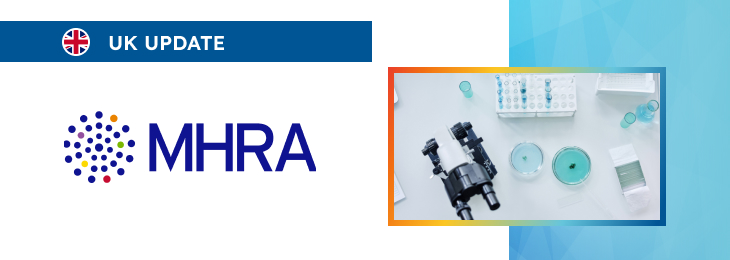The article provides a general overview of the UK regulatory framework for clinical investigations related to medical devices intended to be marketed and used in the country.

Table of content
The Medicines and Healthcare products Regulatory Agency (MHRA), the UK regulating authority in the sphere of healthcare products, has published a revised guidance dedicated to clinical investigations involving medical devices. The document provides an overview of the applicable regulatory requirements set forth under the existing legislation, as well as additional clarifications and recommendations to be taken into consideration by medical device manufacturers, study sponsors, and other parties involved in order to ensure compliance thereto.
The authority also reserves the right to make changes to the guidance and recommendations provided therein, should such changes be reasonably necessary to reflect corresponding amendments to the underlying rules and regulations.
The present guidance outlines distinct requirements for conducting such investigations in Great Britain (England, Wales, and Scotland) and Northern Ireland, also taking into consideration the Northern Ireland Protocol which provides for continued alignment with the relevant EU device regulations.
Clinical Investigation Regulations in the UK: Basics
In accordance with the guidance, in Great Britain, clinical investigations should always be conducted in full compliance with the requirements set forth by the UK Medical Device Regulation (UK MDR) 2002. Conversely, Northern Ireland follows the EU Medical Device Regulation (EU MDR) 2017/745 and the In Vitro Diagnostic Medical Device Regulation (EU IVDR) 2017/746, effective from May 26, 2021, and May 26, 2022, respectively.
Thus, these differences necessitate careful planning and compliance for clinical investigations conducted across both regions. However, it is important to mention that a single application under the EU MDR suffices for studies spanning both areas, simplifying the submission process to the MHRA.
As further explained by the MHRA, medical devices used in clinical investigations in the UK generally must bear the UKCA/CE mark, indicating compliance with the necessary safety and performance standards. However, devices specifically intended for clinical trials investigating performance and safety do not require such marking beforehand.

Compliance and Clinical Data Requirements
The document further describes in detail specific regulatory requirements to be followed by the parties involved in order to ensure compliance with the applicable legislation governing the aspects associated with clinical investigations for medical devices.
Furthermore, all technologies presented should have, or be in the process of acquiring ISO 13485 certification.
Demonstrating Compliance
First of all, medical device manufacturers should demonstrate that their devices meet essential safety and performance requirements outlined in the UK MDR 2002 or the EU MDR. This typically involves the provision of clinical data through one or more of the following methods:
- Critical evaluation of existing scientific literature related to the device.
- Analysis of results from previous clinical investigations.
- Combination of both literature review and clinical data.
Specifics for Clinical Investigations
According to the guidance, for UKCA/CE marking, especially with implantable and Class III devices, clinical data is vitally important, unless previous data adequately demonstrate safety and performance. Investigations should ensure that devices perform as intended when used for the intended purpose; and also assess any undesirable effects under normal usage conditions.
Regulatory Considerations for Northern Ireland
The document pays special attention to the regulatory framework introduced in Northern Ireland, highlighting the differences in comparison to the UK legal framework. For instance, in Northern Ireland, additional regulations apply for implantable and Class III devices, particularly when there are modifications to devices already on the market. Such devices can bypass new clinical investigations if they are equivalent to existing products and the original clinical evaluations meet current EU regulations.
Conducting Clinical Investigations
The document clarifies the approach to be followed by the responsible parties when conducting clinical investigations involving medical devices in order to ensure the safety of study participants (subjects), and also the accuracy, integrity, and reliability of study results.
Notification and Approval Process
As prescribed by the applicable regulatory requirements, before beginning a clinical investigation, sponsors must notify the MHRA and possibly receive approval to proceed.
This involves a detailed review of the clinical investigation plan and associated documentation to ensure compliance with regulatory standards. In Great Britain, the notification period is 60 days, while in Northern Ireland, it is 45 days, extendable by 20 days if further assessment is required.
Methodological and Ethical Standards
The authority additionally emphasizes the importance of ensuring that clinical investigations are planned and executed according to stringent methodological and ethical standards set by the UK MDR 2002. This includes appropriate patient safety monitoring, adverse event reporting, and the generation of conclusive data to evaluate the device’s risk-benefit balance.
Conclusion
In summary, the present MHRA guidance provides a comprehensive overview of the existing legal framework for the clinical investigation of medical devices in the UK, paying special attention to differences between regulations in Great Britain and Northern Ireland. The document also provides important recommendations to be followed by the parties involved in order to ensure all the key points are duly addressed.
How Can RegDesk Help?
RegDesk is a holistic Regulatory Information Management System that provides medical device and pharma companies with regulatory intelligence for over 120 markets worldwide. It can help you prepare and publish global applications, manage standards, run change assessments, and obtain real-time alerts on regulatory changes through a centralized platform. Our clients also have access to our network of over 4000 compliance experts worldwide to obtain verification on critical questions. Global expansion has never been this simple.

